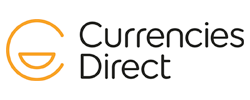How to Find a Trustworthy Financial Adviser?
Would you discuss your financial affairs with someone you met in a bar or perhaps on the strength of a recommendation by a friend? You would be surprised by the number of expats who do and while the second is understandable – why wouldn’t you trust a friend’s recommendation? – it is vitally important to check out the credentials of anyone you trust to manage your money. ExpatMoneyChannel’sHannah Beecham went to find out how expatriates can stay on a straight and narrow (and profitable) path when meeting financial advisers in overseas territories. Her first port of call was to Sam Instone, Chief Executive Officer of global wealth management company AES International. Mr Instone urges expatriates to carry out their own due diligence on every financial adviser they meet before discussing their affairs or handing over their money.
Pointing out that expats are a particularly vulnerable group of individuals, Mr Instone highlights the often unique issues affecting expat money management. “They often have much more complex financial affairs, often with multi-jurisdictional tax issues and regulatory frameworks applying to them and there’s a huge amount of misinformation available on the internet or from financial advisers.”
Mr Instone warns that for those expats living in unfamiliar markets like Asia and the Middle East there’s an absence of safety-blankets many Brits have grown up with – such as basic client protection, basic fair treatment of clients, and such basic systems of control which put their needs first. “They simply don’t receive the outcomes which expats expect when sitting down in front of an adviser and which they would probably get if they were in the UK.”
Repeated errors
Financial advisers like Sam Instone report that expats are making the same mistakes over and over. “They don’t do enough due diligence or ask the right questions of the firms they deal with.” Such basic questions should cover how the firm is regulated and by which authority. “They then need to go out and check that the adviser really is regulated and regulated in a way that the expat believes them to be.” Mr Instone highlights a case of a firm not being regulated in an appropriate way. “You often see insurance firms giving investment advice which means if something goes wrong an expat has no recourse of complaint against that insurance firm.”
Also check out the qualifications of an adviser. If an expat is asking for technical advice on a certain area – say international pensions or a non-residence tax situation – what experience and qualifications does that adviser have in those particular spheres?
Don’t take their word for it
Expats are vulnerable to the bad guys posing as good guys, so Sam Instone’s vital tip to help the expat community avoid such sharks would be to never take the word of qualifications, regulation or guarantees for granted. Always check them out yourself. This means, as mentioned above, checking up that an adviser and/or the firm is regulated and by which authority. It also means asking to see the certificates of qualifications earned. Ask for client proof and client testimonials. And never take for granted the guarantees, or underlying guarantees, promised on a product.
When researching the products and services offered, check out all areas of the CAT document. CAT stands for the charges, accessibility and terms of the investment product and how these will affect and impact upon your finances. Yes, it does mean reading the small print – it may be tedious but it is the only way an investor can truly appreciate what’s being bought. Find out how much your buying the product works in the financial favour of the adviser/sales person.
Furthermore, expats are urged to be wary of exaggerated marketing claims of international financial services firms. “They’ll say they are the largest financial services provider in the world and offer these guaranteed returns. While it’s very easy to say all of this, in reality do such claims actually materialise?”
Finally, Mr Instone says that whether you’re after the purchase of a financial product, or ongoing portfolio management advice, be very specific about what you want in order to get the outcome of your expectations.
Top Tips when Meeting a Potential Adviser
- Don’t be afraid to ask difficult questions.
- Don’t rely on meetings in bars or friends’ recommendations alone. Check credentials thoroughly.
- Bogus advisers are clever. They will often produce credible documentation – don’t take their word for it. Check with the relevant authorities
- Red tape is no excuse for an adviser not being authorised.
- Authorisation does not always cover everything. Check that the adviser is authorised in the investment area specific to your needs.
- If the adviser is based in Europe with a head office elsewhere in Europe don’t assume they are regulated by the home authority. Only firms who have opted to passport their services will be regulated by their home authority. Otherwise they must be authorised locally. In the case of advisers with a head office in the UK, you can check out whether or not they can passport their services in Europe via the FCA register.


